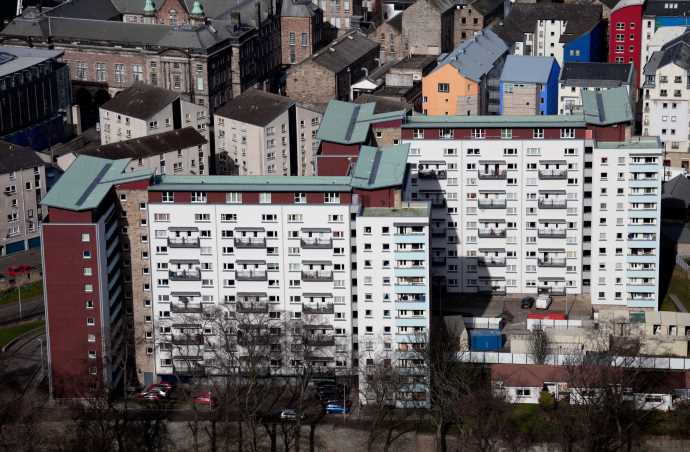COUNCIL housing is essential in helping the most vulnerable in society gain access to a home.
More than one million people are waiting for social homes, up from 1.14 million in 2022.
If you're looking to find out more, here's everything you need to know.
How do you apply for council housing?
To apply for a council house, you need to hand in an application through your local authority.
To find your local authority you can use the Government's council locator tool on its website.
READ MORE ON HOMES

I'm a cleaner – the popular mop that makes your floors even dirtier
Once you are redirected to your council's website, it should offer you guidelines on how to complete your application.
After applying, you'll most likely have to join a waiting list.
Bear in mind, even if you are put on to a waiting list, this doesn't guarantee you a council house.
Your council should also offer you advice on how to stay in your home and solve any issues you might have, such as problems with a private landlord or mortgage.
Who is eligible for council housing?
You are eligible to apply for council housing if you are a British citizen living in the UK and you have not lived abroad recently.
Each council has its own local rules about who qualifies to go on the housing register in its area, but it is based on "points" or a "banding" system.
For example, you’re likely to be offered housing first if you:
- are homeless
- live in cramped conditions
- have a medical condition made worse by your current home
One you are high enough on a council's waiting list, it will contact you with an available property.
When you can apply varies.
Some councils let people apply at the age of 18, while others even let 16-year-olds apply.
EU workers and their families and refugees may also be eligible.
most read in uk news

Major tourist attraction in resort forced to close after man dies

Sara did NOT die falling down the stairs & her uncle is lying, girl's mum says

Man 'murdered' after being sprayed with chemical when he answered door

Lucy Letby's parents 'want to move 250 miles' to live near daughter's prison
Will there be a waiting list?
Yes, there will be a waiting list.
A council house is reached through a points system, so depending on your housing needs, you may be considered low priority.
The council will contact you about any available property once you are high enough on the waiting list.
What are choice-based lettings?
Some councils offer the choice-based letting scheme (CBL).
This will let you tell your council which property you are interested in.
When a home becomes available, new and existing tenants can place a bid.
Bids can usually be made online, by text, over the phone or by post.
All councils have different rules but the basic steps for this scheme are:
- Check your local papers, council website, offices and local libraries to find a property that you like.
- Check whether you can apply for it as some houses are only available for single people, families or disabled persons.
- Apply for the house by phone, text or online. This stage is known as "bidding" but it does not involve any money.
- Then you just have to hope for the best and await the council's decision.
Once you get a housing offer, you will have a short time to accept it and if you do not accept it you can either bid for other properties or stay on the waiting list.
You may be put lower down on the list if you reject a property or even removed if you keep saying no to offers made.
If the council made a decision which you think is unfair and are unhappy about, then you have the right to appeal such decision.
Can I buy my council home?
You can buy your council house under the Right to Buy scheme, but only under certain circumstances.
For example, you can buy your home if:
- it’s your only or main home
- it’s self-contained
- you’re a secure tenant
- you’ve had a public sector landlord for five years – for example a council, housing association or NHS trust
To apply to buy your council house, you'll need to fill in a Right to Buy application form (RTB1 notice).
Once you've completed it you have to send it to your landlord.
They then have to say yes or no to your application within four weeks of receiving it.
If they have been your landlord for less than three years they have eight weeks to respond.
If your landlord refuses to sell you the property they must give you an adequate reason as to why.
If they agree to sell, they'll send you an offer. This will tell you:
- the price they think you should pay for the property and how it was worked out
- your discount and how it was worked out
- a description of the property and any land included in the price
- estimates of any service charges (for a flat or maisonette) for the first 5 years
- any known problems with the property’s structure, for example, subsidence
Source: Read Full Article

